19 May 2022
Celebrating the work of Nurses and Allied Professionals - EuroPCR 2022
The Andreas Grüntzig Ethica Award is presented every year to individuals who have contributed in an extraordinary way to the PCR mission. At EuroPCR 2022, an entire community is being recognised – all Nurses and Allied Professionals (NAPs) working in the field received the Andreas Grüntzig Ethica Award for their outstanding contribution to interventional cardiology, all day every day, but especially in times of crisis.

"It's all about the patient - and the work of naps exemplifies that patient focus"
NAPs have been described as ‘the beating heart of the cathlab’ and ‘the backbone of patient care’, but what do they think about receiving this award and about their key role in interventional cardiology?
What does it mean to the NAP community to win the Andreas Grüntzig Ethica Award?
In a word, Wow! I think there is an unspoken acknowledgement of how much NAPs do and how they step up to meet each and every challenge, but this award is the first time that someone has said, “We’re really proud of you and want to recognise that you’ve done something very well.”
The European Association of Percutaneous Cardiovascular Interventions (EAPCI) and PCR have always been very supportive of NAPs and make it clear that they consider us an important part of the multidisciplinary team, but still, it’s very special to receive this award and the recognition from our peers.
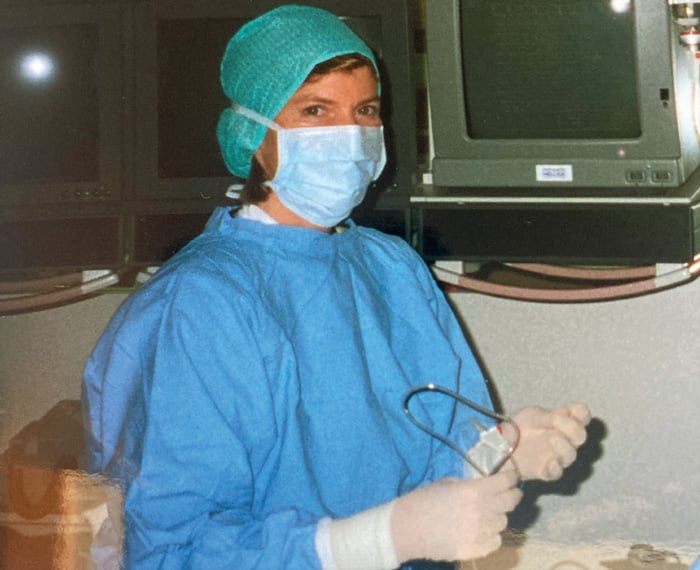
Lynne Hinterbuchner - In a cloth gown!
How has the role of the NAP changed over recent years and how do you think it will evolve?
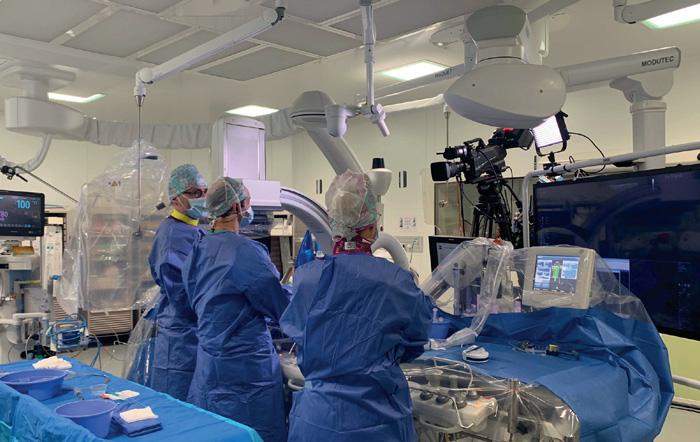
We have come a long way since our days in cloth gowns! But our focus – being there for our patients – has remained the same. We are the ones closest to the patients and we are their advocates, which is a role we adopted long before advocacy became popular within other areas of healthcare.
In common with other healthcare workers, it has been a really difficult time for NAPs during the COVID-19 pandemic, but our job is to bring all the different strands together and keep the process moving, and we try to do this, even in a global pandemic. There was a fair amount of juggling because our roles were frequently changing, and we were often called on to act in other capacities, for example, as a critical care nurse.
Not being able to do the nurturing part of our role also hit us hard, and for many, the missing connection has made us feel like we are giving our patients less and thereby letting them down. But although we were always a good team, I do think being thrown together into this new and frightening situation made us even more cohesive.
Decreasing numbers of healthcare workers in many countries have already seen nurses taking on additional administrative roles, running multidisciplinary team clinics and playing a greater role in running TAVI, PCI and chest pain clinics. However, this depends to a large extent on the country you are in. Developing roles to the same level across countries may be hindered by differences in legislation; however, I am confident that the job will evolve to some extent across all countries. Extending the nurses’ role is something we are talking about at EuroPCR 2022: how nurses can advance their practice and what individual NAPs can do to help with this evolution.
How does the EAPCI NAPs Committee help to support the work of NAPs?
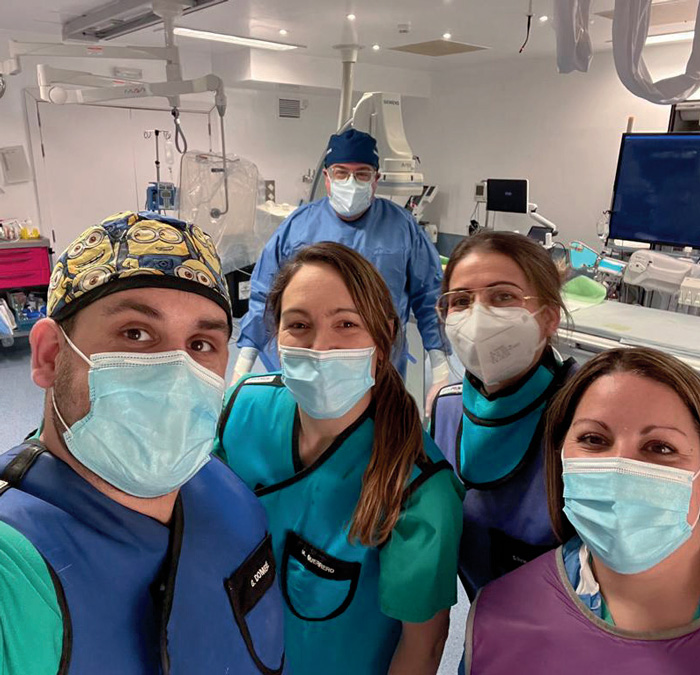
One of our most prominent initiatives is certification, which is another sign of the evolution and standardisation of our roles. The first-ever EAPCI NAP certification exam had to be postponed in 2021 due to COVID-19, but I’m pleased to say that it took place virtually on Tuesday. In the future, we hope to run a virtual basic cathlab course following our curriculum, allowing NAPs to proceed on a module-by-module basis and prepare themselves for the exam.
We are also planning a revision of the curriculum to update it along the lines of other curriculums that have been revised by the European Society of Cardiology. It’s been a difficult road, largely because, in contrast to the UK and Scandinavia, which already have a lot of educational support, there is little education regarding the cathlab for nurses in some other European countries. We really need to make progress in changing that.
I’ve been involved with PCR since 2009, and I know how important it is to get the new generation of nurses interested in this field. There is very little about interventional cardiology in nursing curriculums, so I’m hoping that we can show young nurses what an interesting and exciting area it is to work in – watch this space!
Where would the cathlab be without NAPs?
Put simply, the cathlab wouldn't function without NAPs. The cathlab team is a true example of multidisciplinary teamwork. NAPs have so many fundamental roles in the department. In my experience, the NAPs are in charge of managing the cathlab, caring for patients pre, during and post-procedure, and ensuring and monitoring the radiation safety of both staff and patients.
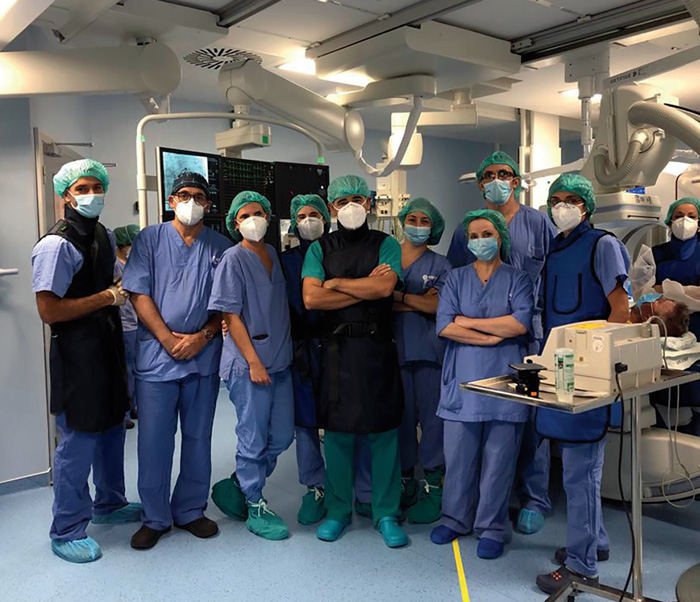
What drives you to do your best for each patient in these difficult times?
I always want my patients to have the best outcome possible. I do the job I do because of my patients. Working through the pandemic provided lots of opportunities for someone like me who relishes a challenge and a changing environment. Having a lead role in my department allows me to ensure we are always striving to do the best for our patients.
What made you choose to work in interventional cardiology and what keeps you motivated?
Interventional cardiology offered the chance to embrace new technologies that can really change patient pathways. I have been lucky enough to have introduced new procedures, such as TAVI, to our service and to see the resulting improvements in the patient journey, progressing from the need for a general anaesthetic to just a local anaesthetic and from requiring a 5-day stay in hospital to just an overnight stay. And it’s so gratifying to see how this improves patients' daily lives.
I particularly enjoy the role of NAPs as ‘communicators’. NAPs are vital to ensuring that communication within the team is accurate and patient-centred at all times and with COVID-19, communication has been particularly challenging. I was driven to do my best, not only for my patients but also for the team I manage, by ensuring that all appropriate measures were in place for safety and that all PPE was available. My focus was to make sure that my team were fully informed with all the latest updates and guidance to carry on delivering the highest standard of care possible for our patients.
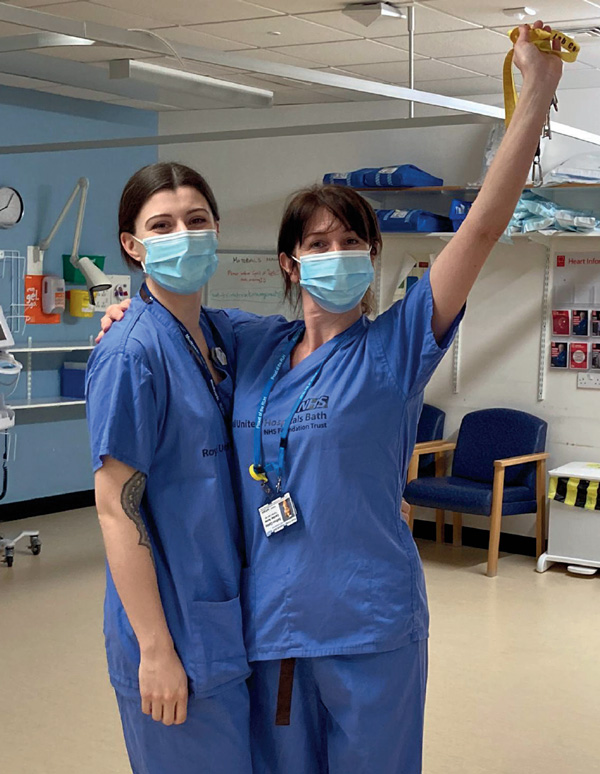
Being part of a team of people who are working together for their patients’ best outcome is an amazing experience and is what keeps me motivated.
EuroPCR 2022 session: Andreas Grüntzig Ethica Award
Authors





